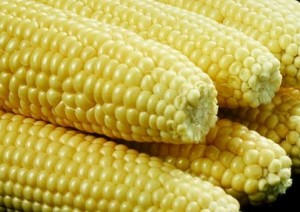CSIR-CRI develops new maize hybrids
 The National Variety Release and Registration Committee (NVRRC), under the Ministry of Food and Agriculture (MOFA), has recommended five new maize hybrids.
The National Variety Release and Registration Committee (NVRRC), under the Ministry of Food and Agriculture (MOFA), has recommended five new maize hybrids.
The maize hybrids were developed by the Council for Scientific and Industrial Research (CSIR)- Crops Research Institute (CRI) and its partners.
The partners are the International Institute of Tropical Agriculture, Ibadan- Nigeria, HarvestPlus and Savana Agricultural Research Institute- Nyankpala in the Northern Region of Ghana.
Special attributes of the newly introduced maize hybrids are high yielding, enriched with provitamin ‘A’, tolerant to drought and Striga and suitable for human, poultry and livestock consumption.
In a presentation, Dr Priscilla Francisco Ribeiro, a Research Scientist and Maize Breeder at the CSIR-CRI, said since maize was a staple food in Ghana and so there was the need to produce varieties suitable for farmers and consumers.
More than 900 million Africans heavily rely on maize for food, poultry and livestock production.
Therefore, she said, there was an urgent need to increase production to address the limited supply of maize hybrids in the country.
She added that with the increasing population and negative effects of climate change, projections indicate that the demand and consumption of maize would increase rapidly in the coming years.
Dr Ribeiro said the high prevalence of vitamin ‘A’ deficiency (VAD) in the country had been partly attributed to low bio-available vitamin ‘A’ in the predominant cereal, root and tuber crop-based foods consumed by adults as well as infants.
She noted that the newly introduced hybrids would help increase farmers’ incomes, reduce poverty, child mortality and improve maternal health, thus, addressing some aspects of the Sustainable Development Goals (SDGs).
Dr Ribeiro, therefore, encouraged farmers to embrace the newly introduced maize hybrids and the technologies to help them increase yield.
The CRI Director, Professor Moses B. Mochiah, indicated that the government was determined to make Ghana self-sufficient in hybrid maize seed production by gradually shifting from the use of Open Pollinated Varieties (OPVs) to hybrids that are highly competitive in the local and international markets.
He said although the CSIR-CRI had previously released some of the hybrids, there was an increasing demand for the commodity by local and foreign investors.
This, he said, called for several hybrids to be released and registered and make them available to farmers and other end users.
Professor Mochiah was grateful to the NVRRC for recommending the varieties for approval to boost the hybrid drive initiative by the government under the Planting for Food and Jobs programme.
Mr Seth Osei- Akoto, the Director of Crop Services of the Ministry of Food and Agriculture and chairman of the NVRRC, indicated that Government had given a quota of 2000 tons of hybrid maize seed to be obtained from local sources in 2022.
Source: GNA
